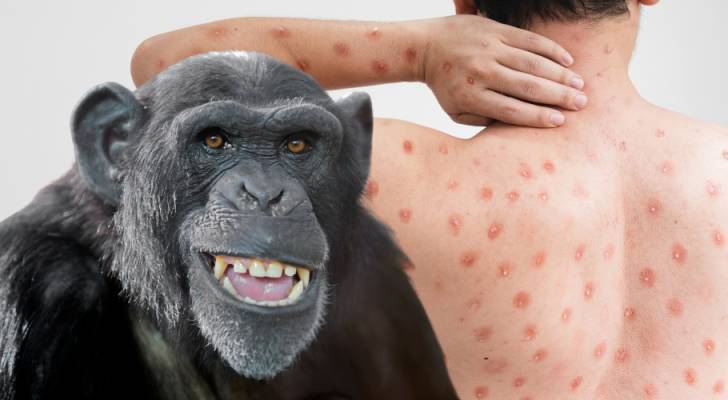Health Ministry addresses Monkeypox concerns amid rising number of cases
Health Ministry addresses Monkeypox concerns amid rising number of global cases
After multiple cases of monkeypox were reported across Africa, Dr. Raed Shboul, Secretary-General for Primary Health Care and Epidemics at the Ministry of Health, confirmed that Jordan is free of monkeypox cases and that there is no cause for concern regarding the disease.
In statements to Roya, Shboul stated that Jordan is not at risk from the disease, emphasizing that there are numerous measures in place to handle any potential cases that may arise.
Read more: First case of dangerous Monkeypox strain recorded outside Africa
He added that the Ministry of Health and relevant authorities have taken all necessary precautions since the first monkeypox case was reported about a year and a half ago.
Dr. Muhammad Al-Hawarat, Director of Communicable Diseases at the Ministry of Health, noted that there is a coordinated national plan for dealing with monkeypox, which has been prepared in collaboration with all relevant bodies, including the National Center for Security and Crisis Management and the Jordan Center For Disease Control.
Regarding border crossings, Al-Hawarat confirmed that a pre-existing plan for all communicable diseases, established during the COVID-19 pandemic, is being applied to any disease that may pose global concerns or emergencies.
He explained that there are health centers and personnel stationed at border crossings, along with a public health liaison officer who works closely with security agencies. If any suspected health cases arise, they are handled according to the plan.
Speaking to Roya about the detection of monkeypox cases, Al-Hawarat explained that the disease is diagnosed through PCR tests available in the Ministry of Health’s central laboratories.
A swab is taken from the skin lesions and examined in coordination with the head of the disease surveillance department and the health center at the border crossing.
Al-Hawarat noted that there is currently no need to procure vaccines, but he affirmed that Jordan is prepared to purchase any necessary vaccines should the need arise.
According to the Ministry of Health, monkeypox is a zoonotic viral disease that can be transmitted from animals to humans. It is rare and primarily affects animals, particularly monkeys, squirrels, and rodents. The causative agent is the monkeypox virus, which belongs to the Orthopoxvirus genus.
The incubation period ranges from 5 to 21 days, with symptoms typically appearing after the incubation period.
Early symptoms include fever, headache, muscle pain, and lower back pain. After 1-3 days, a rash typically develops, starting on the face and spreading to the torso and limbs. The rash progresses through stages, beginning as red spots (macules), then becoming papules, vesicles filled with fluid, or pustules filled with pus. The disease usually lasts 2-4 weeks, often ending in full recovery without complications.
Individuals can be asymptomatic yet still transmit the virus to others. According to the Ministry of Health, the disease rarely progresses to severe stages and tends to affect individuals with weakened immune systems.
For diagnosis, blood samples or swabs from the throat, genital area, or skin lesions can be tested using PCR, ELISA, or virus isolation methods.
There is no specific treatment for the virus; supportive treatments are provided as needed. A vaccine for prevention exists but is not available in Jordan.
Epidemiology of Monkeypox
Monkeypox is rare and endemic in central and western Africa, particularly in tropical regions. Outbreaks typically occur sporadically in these areas. The disease has been recorded in various parts of Africa, including Cameroon, Congo, Liberia, and Nigeria.
Jordan recorded its first monkeypox case on September 8, 2022, in a man in his thirties who had traveled to several countries, including Nigeria. No confirmed cases have been reported since, according to the Ministry of Health.




